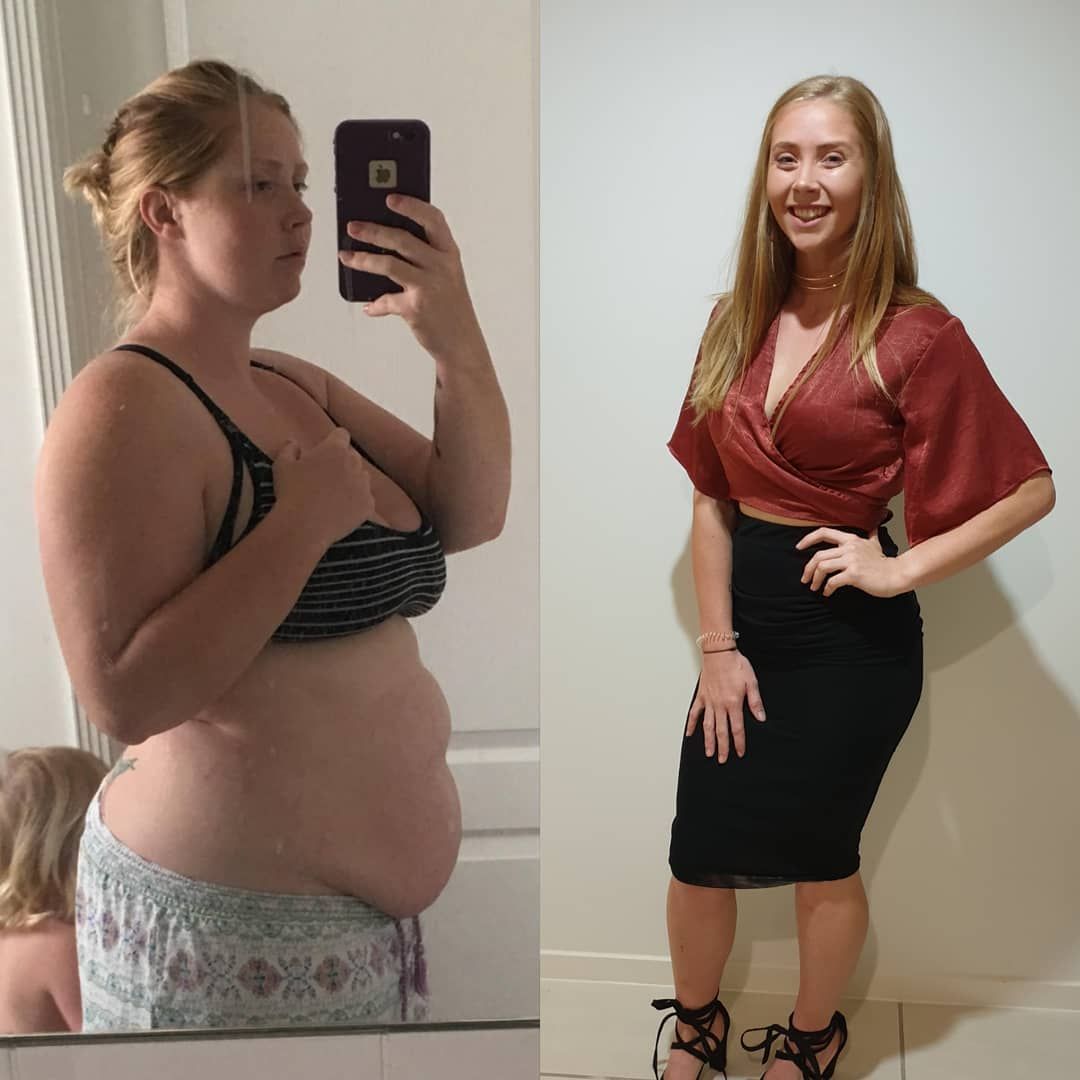Teddi Mellencamp Is An Accountability Coach…And I Kind Of Want One After Learning What They Do
You’ve tried keto, intermittent fasting, carb cycling, and reading every nutrition and fitness article ever to meet your weight-loss goals. But the thing that keeps ruining everything is…your motivation. Why did you even want to lose weight in the first place? Do I really feel like doing this today? Bleh.
It’s this type of attitude and inner monologue that leads some people to call in an accountability coach. Sometimes more than a personal trainer or dietitian or even a life coach, an accountability coach digs deep to help you figure out what you really want out of life—and exactly how to get it.
If you’re a Real Housewives of Beverly Hills fan, you probably know all about accountability coaches. Cast member Teddi Mellencamp has made a professional career out of guiding clients through long-lasting lifestyle changes via her company ALL IN by Teddi, which explains its services as providing continuous, one-on-one support to people trying to reach their health and wellness goals.

The ALL IN site defines an accountability coach as someone who can “hold you to your choices and actions and encourage you to continue down a path to your best self.” Okay…that sounds cool and everything, but what the heck does it actually mean?
WH asked four accountability coaches to define their services, explain their fee structures, and basically give us the 411 on what they do all day to help their clients get after it.
What does an accountability coach actually, you know, do?
First off, accountability coach is a pretty broad term used by people offering a multitude of services. For example, they might help you:
- Meet your health and fitness goals
- Help with entrepreneurial or business goals, like kickstarting your career or small business
- Heal from physical or emotional trauma
- Draw deeper, perhaps spiritual, connections between your mind and body
The possibilities are endless. And all coaches bring different kinds of education, personal history, and professional experience to the table. (For the purposes of this article, we’ll be focusing on coaches who help people reach their health and fitness goals, a la Mellencamp.)
Now, back to the details…what do people mean when they say the word accountability? “Accountability is typically a corporate word,” says Marnie McLain, founder of Marnie McLain Coaching, “but saying what you want out loud and having someone to help keep you on track makes it easier for those things to actually happen [in any context].”
McLain adds that sharing your goals with someone is an important first step, one which allows you to move to step two: figuring out how to reach those goals. This is where an accountability coach can really assist, she says: “Accountability is an actionable way to achieve your goal, but not everyone is good at creating those steps to see their plans or goals into fruition.”
So…they’re a life coach..?
Ehhh, sort of. The main difference between an accountability coach and a life coach is that accountability is a little more narrowly focused. Where a life coach helps you figure out…well, you’re whole freaking life, an accountability coach is more likely to identify key areas you want to zero in on or adjust or that are contributing to your unhappiness and create a targeted plan for making long-term changes.
If you need help following through on a diet and fitness routine, an accountability coach is primed to not only guide you to better physical health but also reach a better headspace about your overall wellness approach and life, too.

“When it comes to accountability, working with a coach that inspires you to have more independence and agency to feel more self-sufficient—versus requiring you to rely on them—is important,” says Natalie Zises, a binge and diet recovery coach. “[A good coach] helps you do the inner work to make decisions and become more comfortable with yourself.”
For example, Zises says the majority of her clients are prone to binging, typically unsuccessful with diets, and don’t feel comfortable in their skin. They don’t have a relationship with food that feels natural, relaxed, and sustainable. Zises helps them create small goals (like losing weight) and big ones (like feeling confident with their body image), and she helps them figure out how to get there with customized coaching and support.
For accountability coach Tessa Romero, founder of Body by Mommy, the connection between mental health and body fitness is key to success. “Most of my clients seek out my coaching for weight loss and help reestablishing their identity,” she says. “My clients need accountability and guidance to finally have success on their health journey, and understand how to make it a lifelong system to follow.”
Sounds great in theory, but what’s this all gonna cost me?
The financials of accountability coaching is subject to a lot of variability. Coaches may charge anything from $400 to several thousand dollars per month for one-on-one coaching (group coaching rates may be lower).
But before you think coaches are rolling around in big piles of money (and hey, some may be doing quite well for themselves), many of them keep their client lists small so they can be readily available to the needs of their clients. Some coach full-time while others, like McLain, have full-time jobs elsewhere and coach part-time on the side. Because of the variation, it’s hard to determine what a typical annual salary for an accountability coach would be.

However, it’s obviously not cheap for the consumer. If you’re blanching at that price tag, we don’t blame you. But Zises offers a solid reason for why coaching services tend to be a pricey investment.
“Rates equal energy: You’ll invest more in the work and in yourself if you’ve paid $2,000 versus $250,” she points out, acknowledging that higher rates also help guarantee the coaches don’t waste their time and efforts on clients who abandon the work or only give 10 percent.
What am I paying for with the monthly fees, exactly?
Many coaches develop their own curriculums or programs stocked with written resources, daily challenges, motivational videos or audio lessons, podcasts, and journal prompts. Additionally, you’ll be given several opportunities to check in with your coach by phone to see how you’re doing with your current goals (and what you’re struggling with). Zises even offers a voice messaging option to her clients so she can feel emotionally connected to them in the moment when they need an extra boost of support or encouragement.
If you’re working exclusively on a fitness regime with a training coach like Romero or Nichole Shewey, owner of FIT4MOM East Contra Costa in California, you could also meet in person weekly with your coach for workout sessions, motivation, and goal review (assuming there’s a physical location for you to get together).

“During an eight-week session, we rely on constant communication as well as weekly fitness, nutrition, and mental challenges,” says Shewey. “Weekly, the trainer and client check in on eating habits by reviewing food journals, and together we discuss what they ate, why, and what changes can we make for the next week.”
Because Shewey works with postpartum moms specifically, her coaching is strongly focused on body transformation. But it also prioritizes self-care, inner strength, and meditation, encouraging new moms to remember what—or who—they’re working for and why.
Romero, who also works frequently with moms, echoes the same sentiments. “My services include everything women need to know and achieve in order to become successful intuitive eaters with a consistent exercise routine,” she explains. “Healing our relationship with food and ourselves takes time and it is much easier to do with a program in place and the right coach to hold you accountable and get you there.”
Do these coaches go to, like, a special school?
There’s no one way to become an accountability coach (and yes, some people adopt the title without much to back it up, so be careful out there). When choosing a coach, make sure to look for credentials that fit with whatever services you’re planning to hire them to perform.

Mellencamp’s ALL IN website states that “accountability coaches are not certified or licensed instructors or nutritionists” and that their strength lies in being real people who can relate to you on common ground. The relatability factor is true, though in some cases coaches do have relevant qualifications; some are credentialed with the National Board for Health & Wellness Coaching, while others receive individual certifications in their area of specialty.
Shewey, for example, has a background in training postpartum bodies, including women with pelvic floor issues and diastasis recti, and is a certified instructor with the national FIT4MOM program. Zises is a certified eating psychology coach and currently working towards her master’s of science in nutrition and integrative health.
If Teddi Mellencamp’s journey inspires you, check out these other celeb weight-loss transformations:
Word to the wise—whether a coach has shiny credentials or not, it’s still important to vet them carefully before hiring them.
What else do I need to know before hiring one?
Any accountability coach you work with should, first and foremost, get you. They’re going to be cheerleading for you for the next several months; if they don’t know where you want to go and what will motivate you, personally, to get there, you’re not going to be happy with your end result.
Also? Make sure you connect with your coach, too. “Talk to a potential coach on the phone for a consultation that lasts at least 30 minutes,” says Zises. “Get a feel for their energy, understand their history, and ask if they’ve personally struggled with weight issues—it’s important to hire someone who can relate to your story.”

Lastly, make sure your coach can actually help you with whatever it is you’re hoping to achieve; a coach who helps entrepreneurs start their own business, for example, is probably not the best person to be giving you nutrition advice. (Duh.)
“It’s important to consider your individual needs, obstacles, and energy, and whether the coach you are considering aligns with [those needs],” recommends Romero. “There are so many coaches out there and I believe there is a perfect coach for everyone, but knowing exactly what you are looking for in a program can help you and your potential coach ensure it’s a match.”
The bottom line: Shewey says accountability is “the act of showing up for yourself each and everyday” so if you struggle with that—but aren’t content to settle for wherever you currently are in your life—you might benefit from working with an accountability coach. Just know that it’s an investment financially and emotionally, so you need to be prepared to commit.
Source: Read Full Article
